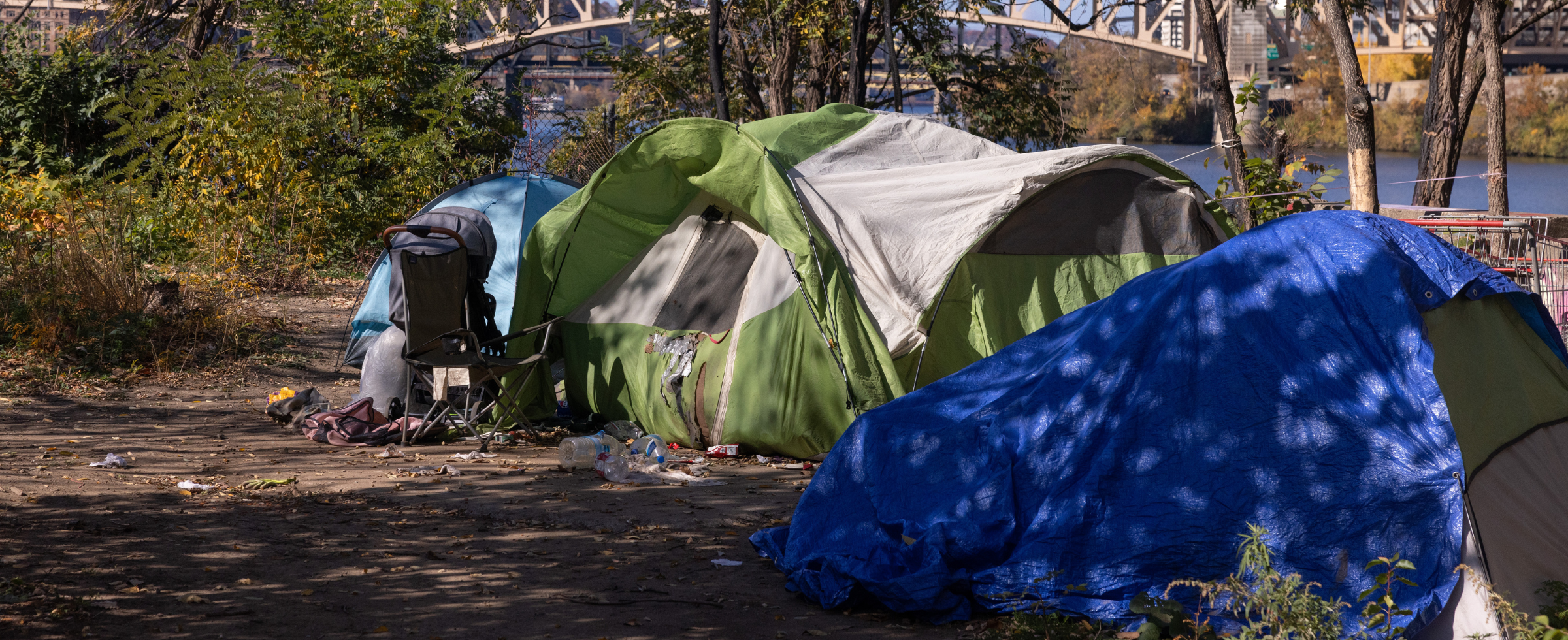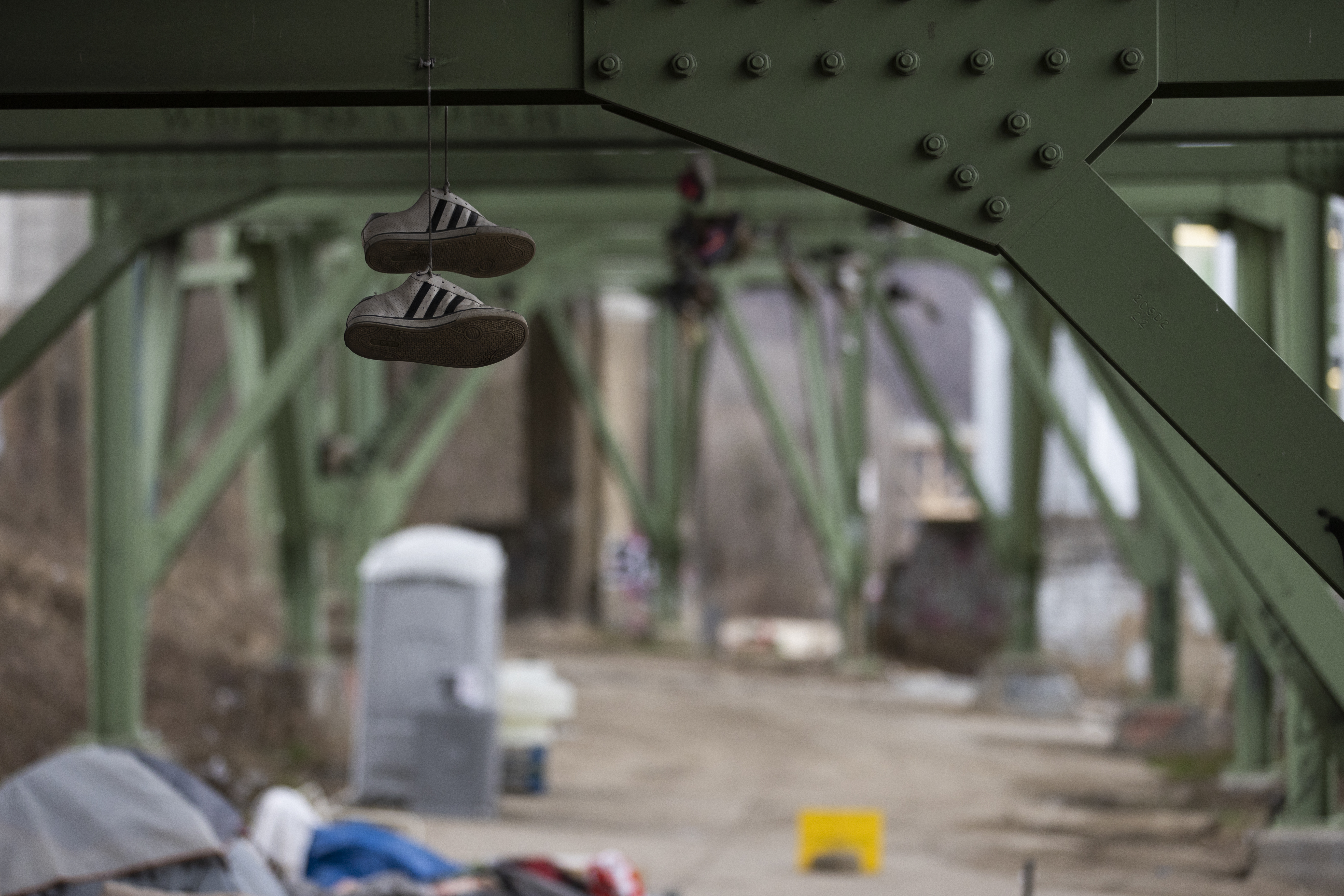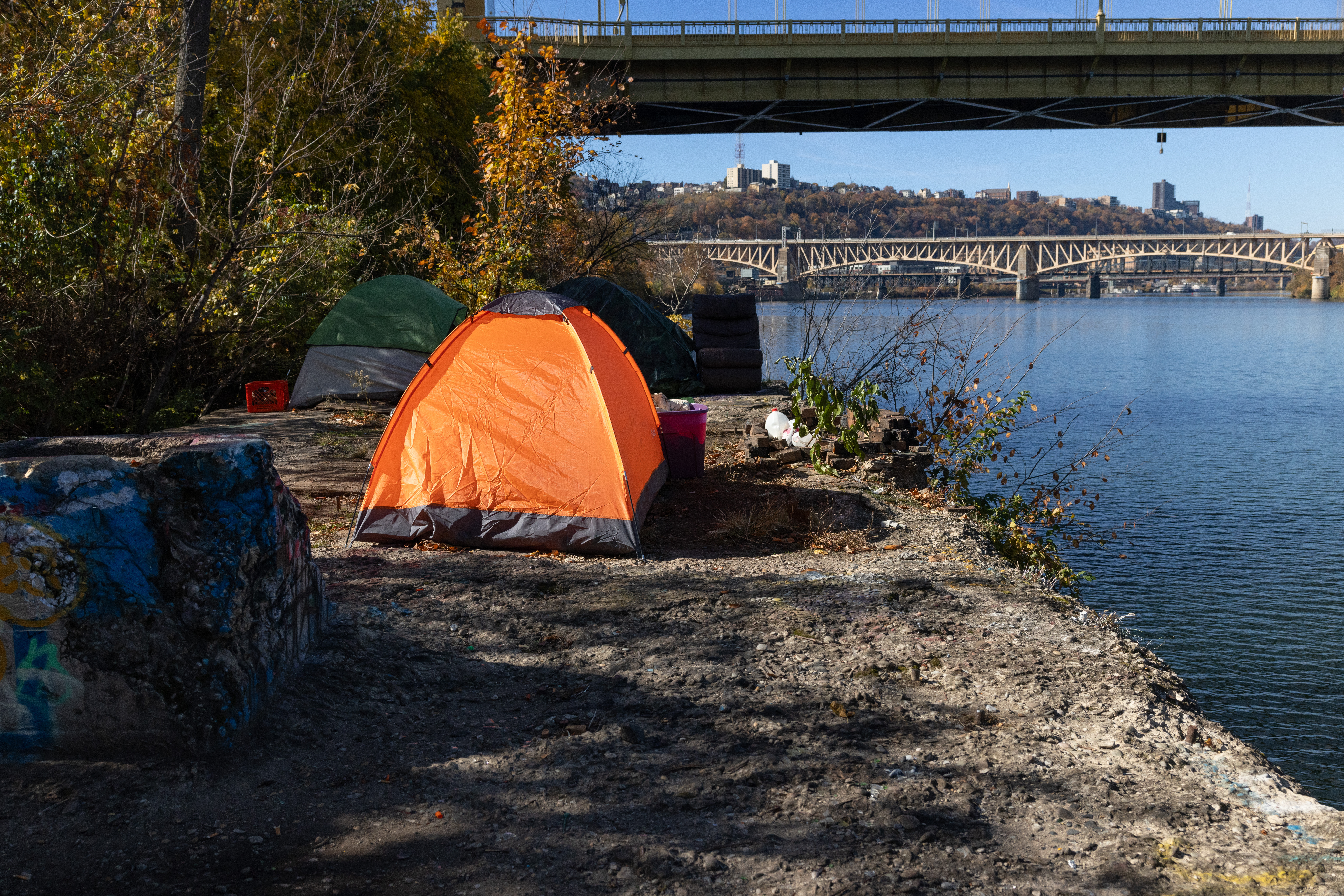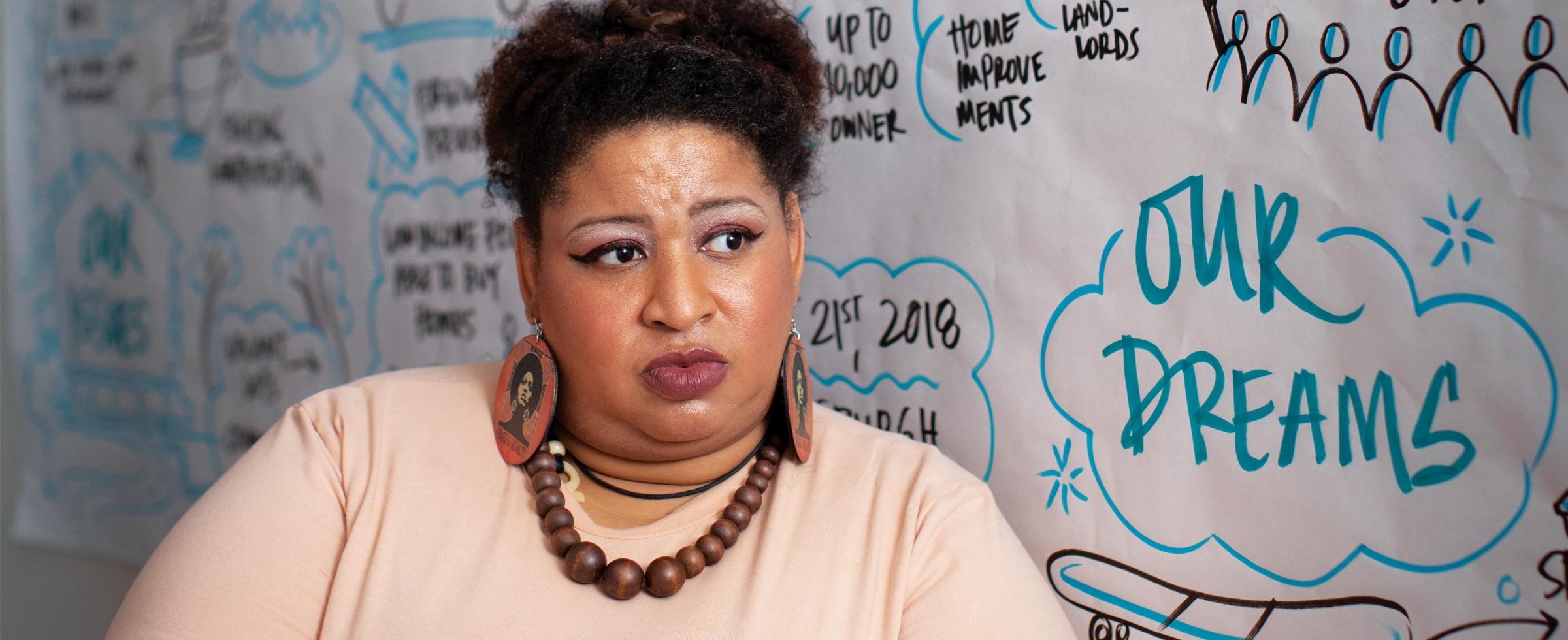Understanding and Combating Homelessness in the Pittsburgh Region

Overcoming homelessness in the Pittsburgh region is one of our area’s most complex and pressing challenges. The unhoused population’s needs are diverse, and there is no one-size-fits-all approach or simple solution to help unhoused people achieve stability and life-long success.

For some, homelessness is a temporary setback caused by financial instability or an unexpected life event. For others, it’s a chronic challenge due to mental or behavioral health and most often, an experience of trauma. Combating homelessness requires close collaboration between community partners like housing support organizations, policymakers, service providers, nonprofit organizations, local communities and philanthropy, to name a few, to create effective housing solutions that meet the moment. Identifying and understanding the needs of the unhoused population in Allegheny County has been a crucial step in addressing the problem.
“Allegheny County has one of the most efficient outreach and engagement programs in the nation, so our teams are able to quickly find and connect with nearly every unhoused person in the area,” says Dave Lettrich, board member of Street Medicine Institute. “Thankfully, that lets us understand exactly who is out there and what they need from us.”
About 80% of the individuals currently staying in Allegheny County shelters are situationally homeless, which means a specific event occurred – like a job loss or domestic violence – that triggered homelessness. Situational homelessness tends to last on average five days, but a lack of affordable housing units keeps people in shelters or on the streets longer.
“Housing insecurity does not discriminate. We see young people, families with children and single older adults, but lately there has been an increase in our elderly neighbors who need help,” says Andy Halfhill, administrator of Homeless Services for Allegheny County Department of Human Services. “Even if their experience with homelessness is brief, they may need additional support that’s difficult to provide to every individual.”

Many people experiencing homelessness do not qualify for federal assistance programs through the U.S. Department of Housing and Urban Development, which are reserved for chronic cases of homelessness. As a result, they can spend more time in temporary shelters. Those who qualify for federal assistance programs may still struggle with the available rapid rehousing services because they need more robust mental health and behavioral support.
“We have an extensive array of services that place people into shelters and housing, but we need to place a greater focus on a true housing-first approach to have more sustainable success,” adds Lettrich. “The goal is to increase our capacity to serve people, especially with mental health support so they can sustain their housing long-term.” Essentially, the region is dealing with a bottleneck effect as unhoused people move through the housing continuum, which makes transitioning from shelters to temporary and supportive housing and then to permanent or affordable housing difficult. When unhoused people are caught in this bottleneck, they are led more easily into chronic homelessness.
Housing is an area of grantmaking focus for The Pittsburgh Foundation, and advocating and convening partners – including donors, policy makers, government officials, service providers and others in the community – can lead to critical dialogue around the issues and to solutions.
The Foundation, for example, works closely with state officials and regional partners to research gaps in housing services and find solutions. The Pittsburgh Foundation also regularly hosts meetings to educate donors on potential solutions like the “500 in 500” initiative, which Allegheny County Executive Sara Innamorato’s administration launched last year to create 500 affordable housing units in 500 days in Allegheny County.
“The more people understand that homelessness is a complex issue impacting individuals and families who are often dealing with issues out of their direct control, the more support we can garner for effective solutions that address homelessness,” says Michael Yonas, vice president of community partnerships and learning at The Pittsburgh Foundation. “Ultimately, our community – whether we’re talking about donors, community leaders, public service organizations, philanthropy and those directly impacted by homelessness – can come together to help our unhoused neighbors get the support they need and live better lives.”



